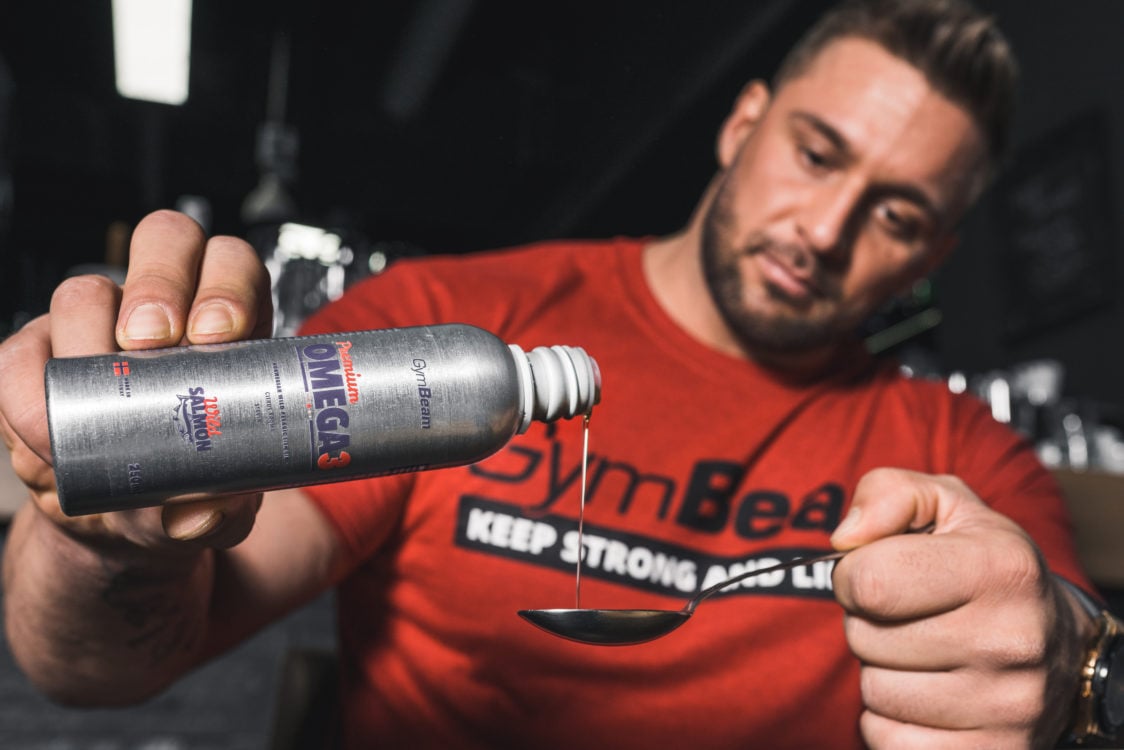Table of Contents
In Limitless, the film starring Bradley Cooper he starts taking the life-changing drug NZT, which allows him to use 100% of his brain’s capacity. After watching this film, you may have wondered if there are any legal brain-boosting substances? At that very instant, you may have thought of Ginkgo biloba, which was recommended for better memory during your studies. If you started googling, you wouldn’t have missed that there is a whole group of substances that can do exactly what you are looking for. Welcome to the world of nootropics.
Nootropics are also known as smart drugs or brain food. Unfortunately, their effects do not reach the quality of NZT in the movies, but they are still worth trying. They can improve memory, concentration and learning. These are factors that often determine success or failure in school, work and other areas of life.
What are nootropics?
Even our ancestors, while exploring their surroundings, must have come across crops and leaves that, when chewed, helped them to stimulate their minds. This allowed them not rest on their laurels and pushed their skills to a higher level. They just didn’t call these gifts of nature nootropics, but probably had more folksy names for them. In fact, it wasn’t until the mid-1960s that this modern term came into use. [1-2]
How did the name nootropics come about?
The Romanian psychologist and chemist Corneliu Giurgea came up with it during his research on piracetam. Originally, according to legend, he was looking for a substance with relaxing effects, but he discovered something completely different. He noticed that the substance increased brain activity. This intrigued him so much that he began to research piracetam further.
When he was thinking about what to call a substance that stimulates brain function in general, he came up with the name nootropic. It was created by combining two Greek words – noos (mind) and tropein (to bend, turn or direct). Meaningfully, we can translate it as substances that can direct our mind in the right direction by their action. [1-2]
Nowadays, however, we can define nootropics as natural or synthetic substances that are associated with supporting brain function. [3]
What is commonly expected from nootropics?
People are often driven to take nootropics by a desire for a better self. Some want to get more favourable grades at university, others to better cope with a high workload, and a third to get rid of the symptoms of brain fog. The latter is mainly characterised by impaired concentration or lack of creativity. What are the effects of nootropics that could help? [4-5]
- better short and long term memory
- better concentration and attention span
- support learning
- better decision-making abilities
- greater creativity
- support problem-solving skills
- improve reaction time
- reduced feelings of fatigue
- a greater sense of energy and mind boost
- promote alertness and greater vigilance
- easier memorisation of new knowledge
- slow down the ageing process of the brain
- greater resistance to stress
- better mood and greater mental well-being
- more motivation for work and study
- greater psychological performance
If you want to improve in a certain area of your life, you can also try the biohacking tips from our article Biohacking: 7 Tips to Improve Your Life in Every Way.

How do nootropics work?
To understand the effect of nootropics, it is important to know what is actually behind cognitive function. In the brain, there are a complex network of neurons (brain cells) that communicate with each other through synapses. They use neurotransmitters as information messengers, assisted by glial cells. They also ensure that the neurons are adequately nourished and protected. When you learn something new, a new connection is made. And if you forget something, the connection is lost. It’s a dynamic process called neuroplasticity. This term is generally understood as the evolution of changes in the brain over the course of a lifetime. [2]
The brain’s ability to build new connections is essential to its proper function. This is reflected in memory, learning and concentration. Nootropics can engage in these processes and make them more efficient. [6-7]
What are the major effects of nootropics?
They can increase blood circulation within the brain. This contributes to better oxygenation and transport of glucose, which the brain uses as an energy source. Additionally, they help to flush out neurotoxic substances that could damage the brain more efficiently.
Nootropics boast anti-inflammatory and antioxidant properties. They can protect brain cells from the negative effects of oxidative stress and toxic substances. Among other things, this slows down the ageing process of the brain.
Nootropics can affect the production and activity of neurotransmitters. These include dopamine and acetylcholine, which are important for memory, learning and thinking. In addition, they are involved in regulating the activity of receptors (found on neurons) to which neurotransmitters can bind. As a result, the entire synaptic transmission is supported.
They can promote the regeneration and growth of brain cells. Nootropics can activate nerve growth factor (NGF), which is involved in the regulation of neuron growth and survival. In addition, they have a positive effect on Brain-Derived Neutrophic Factor (BDNF), which is responsible for the growth and preservation of nerve cells. As a result, they can promote neuroplasticity of the brain. [6-7]
Nootropics thus have great potential to improve your brain function. However, all of these effects can typically only occur with long-term use. That is, except for caffeine and theanine, whose effect can be observed within a few tens of minutes. Unfortunately, they don’t generally work in such a way that after the first use you get a lightbulb moment and can get straight down to studying nuclear physics. The effect of nootropics is gradual and requires prolonged use over months or years.

The most commonly known types of nootropics and their effects
These include extracts from plants, mushrooms or chemically produced substances that are, however, natural to the body. You might be surprised to find that you are familiar with some of them, and probably may have had some experience with them.
1. Caffeine stimulates and improves alertness
Caffeine is perhaps the best known and most widely used nootropic. When you need a mental boost the first choice is most often coffee, tea or an energy drink. And this is mainly due to their common denominator in the form of caffeine. It can also be found in various caffeine or energy tabs or even in guarana.
A number of famous writers, intellectuals and scientists have enjoyed coffee. The writer Honoré de Balzac, for example, is said to have drunk up to fifty cups of coffee a day, which enabled him to write an incredible number of novels, plays and short stories. But his excessive caffeine intake probably took its toll on him. He died prematurely at the age of 51 of heart failure. Which is why caffeine is often described as a good servant but a bad master. [8]

Nootropic effects of caffeine according to studies
Caffeine is widely known to kick-start concentration, delay fatigue, improve athletic performance and mood. What’s the science behind these effects?
Involved in reducing fatigue and providing energy: Caffeine can bind to adenosine receptors. This blocks them and can reduce the action of adenosine, which is designed to calm you down, make you feel tired and sleepy. Instead, caffeine makes you more alert and gives you a burst of energy. You can get more work done or get through more pages of study material.
It can increase alertness: After consuming caffeine, your body’s levels of the hormones adrenaline and cortisol can also rise, resulting in greater alertness and attentiveness. This makes you better able to concentrate on work, learning or problem solving.
It puts you in a good mood: Caffeine also has an effect on the activation of neurotransmitters such as dopamine and serotonin, which are associated with feelings of well-being and contentment. With a good mood, everything somehow becomes easier. [9-10]
Caffeine can also improve athletic performance. If you are interested in this topic, read our article Caffeine Before a Workout: Effects, Benefits, Risks and Dosage.
Recommended caffeine intake
You shouldn’t overdo it with caffeine. Instead of better concentration and mental flow, a large dose can make you feel jittery, irritable, and can also cause heart palpitations or indigestion. So, it is necessary to watch how much caffeine you consume in a day from drinks (coffee, tea), BCAA drinks, tablets, pre-workouts, energy shots and other sources of this substance.
- The EFSA (European Food Safety Authority) has set the upper limit of caffeine intake at 400 mg per day for a 7 0kg person, which corresponds to an intake of 5.7 mg/kg per day.
One dose should contain no more than 200 mg of caffeine (3 mg/kg). [11]
Genetics also influences the effect of caffeine on our body. Read more about this in our article Genes Determine the Effect of Caffeine on the Body. How to Maximise Its Stimulating Effects?
You might be interested in these products:
2. L-theanine can stimulate and reduce mental tension
L-theanine is an amino acid that, like caffeine, can be found in green tea. Often the mere act of drinking tea is associated with a feeling of relaxation. But at the same time, this drink can also invigorate you. L-theanine probably plays a role in this. It has been associated with a positive effect on stress reduction and, in combination with caffeine, has also been shown to support cognitive function.
Nootropic effects of L-theanine according to studies
It can promote concentration: In combination with caffeine, it can help improve concentration. It also dampens the sharp onset of caffeine for some, which translates into greater calmness and a cooler head. This is especially appreciated by people who are more sensitive to caffeine.
It can be neuroprotective: This is probably due to the ability of L-theanine to block the glutamate receptor. This has a stimulating effect on the nervous system, but can be toxic to the brain if overactive. L-theanine seems to have the ability to prevent these negative effects.
Contributes to reducing feelings of stress and tension: Once L-theanine enters the brain from the blood, it increases the activity of the brain’s alpha waves, which can induce a feeling of calm and relaxation. In addition, it can increase levels of the neurotransmitter GABA (gamma-aminobutyric acid), which relieves nervous tension. [12, 14-15]
Recommended dosage of L-theanine
L-theanine is recommended to be taken in a 1:1 ratio together with caffeine. Typically, this is 100-200 mg of L-theanine.
- By taking it simultaneously with caffeine, you should not go over the maximum intake of 400 mg per day.
An upper intake limit for L-theanine has not yet been set. [13]

3. Bacopa monnieri will help with memory and mood
Bacopa monnieri is an Ayurvedic herb that you may also know as Brahmi. The main factor behind its abilities are the active substances in the form of bacosides. In the form of dietary supplements, it is used to support brain function, especially memory and overall mental health.
Nootropic effects of Bacopa according to studies
It can boost memory: Thanks to its beneficial effect on the retention of information and logical thinking. In this respect, it has also proved useful for people with Alzheimer’s disease, who often suffer with memory impairment.
A positive effect on mood: This is mainly due to bacopa’s ability to reduce levels of the stress hormone cortisol, as well as its positive effect on dopamine and serotonin activity. These help to manage mental tension and are linked to mood, emotion and motivation.
It can protect nerve cells: Bacopa also contains quercetin. This is an antioxidant that, according to the research done so far, may be involved in protecting neurons from oxidative stress damage. [16-17]
Recommended dosage of Bacopa monnieri
Bacopa is most commonly taken in the amount of 300 mg in the case of a supplement with a standardised extract with 55% active ingredient content.
- In the form of a leaf or powder from this plant, an amount of 750-1500 mg is recommended.
Historically, bacopa was eaten with clarified butter (Ghee). This is because it needs a fat carrier to be used properly in the body. Thus, it is a good idea to take this substance with food.
A common combination among biohackers is bacopa and its relative gotu kola, with which it acts synergistically. [17]
If you are wondering what other natural substances can help you cope better with stress, read our article Adaptogens: Natural Substances that Help Manage Stress.

4. Acetyl L-Carnitine promotes energy production in the brain
You may be wondering what in the world makes this substance a nootropic, after all, carnitine is a fat burner. It is true that L-carnitine promotes the conversion of fat into usable energy. However, in the form of acetyl L-carnitine, it also has positive effects on brain function. It can cross the blood-brain barrier and reach the brain more efficiently.
Nootropic effects of acetyl L-carnitine according to studies
- It helps energise the brain: This substance acts as a carrier of fatty acids (fats) to the mitochondria, where they are converted into usable energy.
- Supports cognitive function: L-carnitine is one of the substances that can activate the neurotransmitter acetylcholine. This is related to memory, alertness and thinking.
- It is associated with a beneficial effect on brain health: Acetyl L-carnitine has antioxidant effects, which may also make it neuroprotective. It can also promote brain-derived neurotrophic factor (BDFN). Last but not least, it is associated with promoting optimal blood flow to the brain. [18-19]
Recommended dosage of acetyl L-carnitine
- The standard dose is 630-2500 mg per day.
L-carnitine is a natural substance that you ingest every day through food. Thanks to this, it is usually well tolerated and has no adverse effect on the body. [18, 20]
If you are interested in other benefits of carnitine, read our article L-Carnitine and Its 11 Amazing Side Effects.

5. Choline is related to proper memory function
Choline is a substance that is sometimes compared to B vitamins due to its properties. It is found naturally in foods such as eggs, beef and Brussel sprouts. It is essential for your body because the body cannot make it on its own. Therefore, it is necessary to consume sufficient amounts of it every day from your diet or supplements. Choline is a precursor of acetylcholine, which is why it contributes to proper brain function. Dietary supplements containing it are justifiably among the most effective nootropics.
Forms of choline in dietary supplements:
- Choline bitartrate
- Alpha-GPC (L-alpha-glyceryl phosphoryl choline)
- CDP-choline (Citicholine)
- DMAE (Dimethylaminoethanol)
Nootropic effects of choline according to studies
- Involved in proper memory function: because choline forms acetylcholine, it plays an important role in the ability to memorise information. In contrast, insufficient choline intake is associated with memory and learning disorders and brain fog. [21]
- In the form of Alpha-GPC or CDP-choline, it can promote neuronal growth: it is involved in the construction of cell membranes and can thus promote neuroplasticity. It can also reduce the negative effects of brain ageing. [22-23]
- DMAE may support the preservation of cognitive function: This form of choline can reduce the production of beta-amyloid, which has a negative effect on brain function in later life. Higher levels of beta-amyloid have been observed, for example, in people with Alzheimer’s disease. [24-25]
Recommended dosage of choline
- The recommended dose of choline bitartrate is 500-3000 mg per day.
- Alpha-GPC is commonly administered in the amount of 400-1200 mg per day.
- In the case of CDP-choline, the most commonly recommended dosage is 250-500 mg per day.
- DMAE is commonly administered in amounts of 100-200 mg per day. [26-27]

6. Phosphatidylserine is known to be involved in the preservation of cognitive function
Phosphatidylserine is an amino acid derivative that is one of the important components of the brain and nervous system. It is involved in the construction of the membranes of nerve cells, which are involved in the transmission of signals throughout the body. As a result, it plays a role in the proper functioning of cognitive functions such as memory, learning or concentration. According to research, cognitive decline, which is a common part of ageing, is associated with cognitive decline. Therefore, the use of this substance in the form of dietary supplements and their effect on brain function has been the subject of much research. [28]
Nootropic effects of phosphatidylserine according to studies
- It may slow age-related cognitive decline: A daily dose of 100-300 mg of this substance is associated with a positive effect on maintaining healthy memory and reasoning.
- Participates in the proper function of brain cells: phosphatidylserine has an effect on the maintenance of brain cell permeability, which is important for neuroplasticity. As a result, it can support the ability to learn and retain new information.
- Helps keep neurons healthy: together with docosahexaenoic acid (DHA), which is part of fish oil, it helps repair nerve cells. It also helps to prolong their lifespan. [28-29]
Recommended dosage of phosphatidylserine
- The usual dose of phosphatidylserine is 100 mg 3 times a day. This gives you a total of 300 mg, an amount that research suggests may help slow down ageing of the brain. [30]
7. Hericium (Lion’s mane) promotes brain cell longevity
Hericium is a rare mushroom that you may also know as lion’s mane or Yamabushitake. It boasts a high content of biologically active substances, including polysaccharides and hericenones. This makes it one of the so-called medicinal mushrooms. It is mainly used to support mental health and brain function.

Nootropic effects of Hericia according to studies
- Involved in the growth of new neurons (neurogenesis): Hericium can activate nerve growth factor (NGF), which is responsible for the growth, preservation and longevity of nerve cells.
May improve cognitive function: this substance may help people with impaired intellect (dementia, Alzheimer’s disease). Positive changes have been noted in memory and thought.
Linked to mental health support: study participants who took hericium for one month reported a reduction in feelings of anxiety and irritability at the conclusion of the study. [31-32]
Recommended dosage of hericia
- In studies, a dose of 1000 mg (96% extract) 3 times a day for a total daily intake of 3000 mg has been shown to be effective. It is not yet known whether this is the optimal dose. However, based on research, it appears to be effective.
- It is also commonly administered in smaller amounts, such as 500 mg per day. [33]
You can read more about other medicinal mushrooms and their effects in our article What are the Effects of Reishi, Oyster Mushrooms and Other Medicinal Mushrooms?
8. Ginkgo biloba supports memory and has antioxidant effects
Ginkgo biloba is a tree whose leaves are used to make dietary supplements that are among the best known in the field of memory and learning support. In addition, biohackers often include it in their list of the most effective nootropics to help maintain a state of creativity and thought flow.
Nootropic effects of Ginkgo biloba according to studies
Promotes optimal blood circulation to the brain: This allows the brain to receive the oxygen and nutrients it needs to function more efficiently. In the same way, the brain can get rid of waste substances more easily. As a result, it will perform better, which you will appreciate, for example, during an exam or a job interview.
- It can help protect the brain from the effects of ageing: it contains antioxidants that help protect brain cells, and especially mitochondria (the cell’s energy factories), from free radical damage. As a result, it contributes to the maintenance of proper brain function, helping to keep your memory in good shape. [34-35]
Can support mental health: it has also been linked to an increase in levels of the neurotransmitter dopamine, which affects mood and contentment. [36]
Typical dosage of Ginkgo biloba
- To support cognitive function, a dose of 120-240 mg of Ginkgo biloba is recommended 1-4 hours before an exam or other intellectual task.
- For the preservation of cognitive function, it is most often administered in the amount of 40-120 mg three times a day.
For proper absorption, Ginkgo biloba should be taken with food. [34, 37]

9. Rhodiola rosea helps with concentration and stress
Rhodiola rosea, or pink stonecrop, is a herb that is one of the best known adaptogens. However, thanks to its properties, it also ranks on the list of the most effective nootropics. Traditionally, it has been used to reduce feelings of fatigue, stress and also to support mental performance.
Nootropic effects of Rhodiola rosea according to studies
- It can help to manage stress better: it can normalise levels of the stress hormone cortisol, which in higher amounts is associated with feelings of anxiety, tension and irritability. In addition, it can increase levels of serotonin, which is associated with pleasurable feelings.
- It can reduce the feeling of fatigue: it helps to restore cellular energy in the form of ATP, which can result in increased physical and mental energy.
- It has a beneficial effect on concentration: it supports the ability to concentrate even under high levels of stress and tension. This makes it ideal when studying for an exam or preparing for a presentation of a new project at work and other occasions when you feel under pressure. [38-40]
Recommended dosage of Rhodiola rosea
- When choosing a dietary supplement with Rhodiola, choose those that contain a standardised extract containing 3% rosavin and 1% salidrosides.
- Doses ranging from 50 to 600 mg per day are commonly used in studies.
- However, higher doses (typically exceeding 680 mg per day) are no longer recommended. So here, a larger amount does not mean a better effect. [38]
If you’re wondering what else can help you concentrate better, check out our article How to Improve and Maintain Concentration During Work and Study?
10. Creatine helps to supply the brain with energy
Creatine is another substance you probably wouldn’t expect to find on this list. Thanks to its unique properties, especially its effect on the restoration of cellular energy ATP, it has its place of honour in this list of nootropics. In fact, it can help energise not only muscles but also nerve cells. In addition, optimal creatine levels have recently been increasingly linked to proper brain function.

Nootropic effects of creatine according to studies
- Supports brain energy: Through the restoration of energy in the form of ATP, it can reduce mental fatigue. One study even found that creatine supplementation (8g/day for 5 days) increased oxygen utilisation in the brain and reduced mental fatigue. Thus, you can use it to increase your productivity and handle an increased number of work or study responsibilities. [46]
- It affects the production of neurotransmitters: Sufficient ATP is also associated with the production and activation of neurotransmitters that affect thought and mood. As a result, you may be in a greater state of mental well-being.
- Involved in the protection of nerve cells: Supports cell metabolism, which is important for the lifespan of neurons. It can also slow down the ageing process of the brain and with it, support long-term memory and the ability to retain new information. [41-42]
- May support cognitive function: 5 g of creatine over a 6-week period resulted in faster information processing and memory support in study participants. [46]
Recommended dosage of creatine
- To achieve the desired effect, it is most often recommended to take a dose of 3-5 g of creatine per day. [43]
- You can take it in the form of tablets or soluble powder.
More interesting effects from creatine can be found in our article How to Select the Best Creatine?
11. Fish oil promotes proper brain function
Fish oil is the best source of omega 3 fatty acids, which are sometimes referred to as healthy fats. The most well-known ones are eicosapentaenoic acid (EPA) and docosahexaenoic acid (DHA). In the body, they take care of the proper functioning of the most important organs, such as the heart and brain. Therefore, it is important to keep an eye on their intake even if you want to support proper functioning of the brain.
Nootropic effects of EPA and DHA
- DHA supports proper brain function: DHA is an important structural component of the brain. As such, it is directly involved in its proper functioning and is particularly associated with memory and learning.
- It is neuroprotective: Thanks to its anti-inflammatory effects, DHA can increase protection against the development of neurodegenerative diseases such as Alzheimer’s or Parkinson’s. It also has the ability to activate the brain growth factor BDNF.
- EPA has a positive effect on the psyche: The beneficial effect of EPA on mental health has been demonstrated particularly in people with depression and anxiety. [44]
Recommended dosage of fish oil
- Omega-3 fatty acids can be obtained from fish oil, cod liver oil, seaweed oil or krill oil.
- According to the European Food Safety Authority (EFSA) recommendations, a healthy adult should ingest 250 mg of EPA and DHA per day. [45]
- The American Heart Association (AHA) recommends an intake of 1g of fish oil per day.
To learn more about the effects of healthy fats, read our article Healthy and Unhealthy Fats: Which Foods to Eat and Which to Avoid?

12. Complex nootropics with a synergistic effect
Complex nootropics are products that have a variety of different effects thanks to their carefully selected composition. This is mainly due to the combination of plant extracts, vitamins, minerals and other biologically active components. This typically results in a functional synergistic mixture. These multi-ingredient supplements have a broader and more comprehensive nootropic effect than single-ingredient products.
Multi-ingredient nootropics for better brain performance:
- FueBrain: Is appreciated by students, those who work, athletes and people who are faced with solving various problems every day or need to concentrate better. This complex nootropic does not contain caffeine, so it is also ideal for people who limit caffeine. This makes it suitable even in the afternoon and evening. In its composition it has, for example, Ginkgo biloba and Rhodiola rosea extract, DMAE, L-theanine and other substances with a nootropic effect.
- XBEAM Energy Caps or Energy Powder: These have a tailored formula for all gamers and e-sport players who need a boost but also need to keep their cool, react quickly to the game situation and stay focused even in tense situations. The ingredients include caffeine, L-theanine, Rhodiola rosea extract, Bacopa or phosphatidylserine. These will reliably help you strike the decisive blow and get you standing on the podium.
Other substances with nootropic effects
But the list of nootropics does not end here. They include many other biologically active substances such as ashwagandha, guarana, L-tyrosine, ginseng, gotu cola, blueberry extract, SAM-e or niagen. Choose the nootropic that best suits your needs in terms of its effects, or reach for a functional complex product.
Other smart drugs such as piracetam, methylphenidate or modafinil will be discussed in more detail next time.
For whom are nootropics suitable?
Everyone can benefit from the effects of nootropics. Even after graduating, you are constantly learning something new. Whether it’s a new job, a skill that can help you get a promotion, or learning another language, you always need to remember new information. Moreover, in today’s world full of social media and information pouring in from all sides, it is often difficult not to procrastinate and focus on one thing. Nootropics can help with that too.

Who can benefit from the use of nootropics?
- Students: they need to concentrate as much as possible at school, maintain sustained attention while studying and perform well under exam conditions. Ginkgo biloba, choline, bacopa monnieri and creatine could help with this.
- Athletes: In their everyday life, it is important for them to focus on performance, react quickly, feel mentally well and have sufficient energy. Creatine, caffeine, fish oil, Rhodiola rosea and acetyl L-carnitine can help do this.
- Gamers: For them, sustained attention, quick reactions and functioning under stress are crucial. A mixture of nootropics and adaptogens, which should include caffeine, bacopa or L-theanine, is suitable for them. They can also choose a complex product that has been custom-designed for them.
- Executive managers: They need to react quickly, deal with the day-to-day problems of the company, continuously educate themselves in their field and manage their work even under pressure. For example, caffeine, L-theanine, Rhodiola rosea and fish oil are ideal for them.
- Artists: All artists, writers, copywriters, social media managers and other people who need to come up with innovative and unusual ideas in their work might also appreciate the effects of nootropics. Caffeine, L-theanine, choline and ginkgo biloba can help them in their daily tasks.
What should you remember?
If you feel that you often lack mental energy, find it hard to concentrate during work or study, or have memory problems, nootropics can help. They have a positive effect on brain health and, when taken long term, can even slow down brain ageing. They also help you cope more easily with stress and perform better under pressure. As a result, their use can prove useful in everyday life. You can choose a nootropic according to the described effects or try a complex product that contains synergistically working substances.
If you liked our article and took away new information from it, please share it with your friends. This will also help them discover which substances will help them with concentration, memory and learning.
[1] Dictionary.Com. Nootropics Meaning & Origin. – https://www.dictionary.com/e/slang/nootropics/
[2] Neurohacker Collective. What Are Nootropics? – https://neurohacker.com/what-are-nootropics
[3] Nootropics Expert. The Definitive Guide to Nootropics .– https://nootropicsexpert.com/nootropics-guide/
[4] Mindbodygreen. Nootropics Are The Brain-Boosting Ingredients You Need In Your Supplement. – https://www.mindbodygreen.com/articles/health-benefits-of-nootropics
[5] MedicineNet. What Are Nootropics? Benefits, Chart, Side Effects. – https://www.medicinenet.com/what_are_nootropics/article.htm
[6] Malík, M., & Tlustoš, P. Nootropics as Cognitive Enhancers: Types, Dosage and Side Effects of Smart Drugs. – https://doi.org/10.3390/nu14163367
[7] Suliman, N. A., Mat Taib, C. N., Mohd Moklas, M. A., Adenan, M. I., Hidayat Baharuldin, M. T., & Basir, R. Establishing Natural Nootropics: Recent Molecular Enhancement Influenced by Natural Nootropic. – https://doi.org/10.1155/2016/4391375
[8] France Today. A Cup of the Strong Stuff: Honoré de Balzac’s Coffee Habit. – https://francetoday.com/culture/a-cup-of-the-strong-stuff-honore-de-balzacs-coffee-habit/
[9] Frank, K., Patel, K., Lopez, G., & Willis, B. Caffeine Research Analysis. – https://examine.com/supplements/caffeine/
[10] Precision Nutrition. Coffee and hormones: Here’s how coffee really affects your health. – https://www.precisionnutrition.com/coffee-and-hormones
[11] EFSA. Caffeine.– https://www.efsa.europa.eu/en/topics/topic/caffeine
[12] Hidese, S., Ogawa, S., Ota, M., Ishida, I., Yasukawa, Z., Ozeki, M., & Kunugi, H. Effects of L-Theanine Administration on Stress-Related Symptoms and Cognitive Functions in Healthy Adults: A Randomized Controlled Trial. – https://doi.org/10.3390/nu11102362
[13] Research Breakdown on Theanine—Examine. – https://examine.com/supplements/theanine/research/#safety-and-toxicology-1
[14] Wang, L., Brennan, M., Li, S., Zhao, H., Lange, K. W., & Brennan, C. How does the tea L-theanine buffer stress and anxiety. – https://doi.org/10.1016/j.fshw.2021.12.004
[15] Bill Willis, P. Theanine Research Analysis. – https://examine.com/supplements/theanine/
[16] Examine. Bacopa monnieri and cognition. – https://examine.com/summaries/study/7dxWZ9/
[17] Examine. Bacopa Monnieri—Health benefits, dosage, safety, side-effects, and more. – https://examine.com/supplements/bacopa-monnieri/
[18] Nootropics Expert. Acetyl-L-Carnitine .– https://nootropicsexpert.com/acetyl-l-carnitine/
[19] Ka, W., & Ka, W. The Effects on the Cognitive Function of Healthy Volunteers of a Combination of Acetyl-L-Carnitine, Vinpocetine and Huperzine A Administered Over 28 Days. – https://doi.org/10.23937/2378-3001/1410089
[20] Antonis Damianou, Ms. L-Carnitine Research Analysis. – https://examine.com/supplements/carnitine/
[21] Poly, C., Massaro, J. M., Seshadri, S., Wolf, P. A., Cho, E., Krall, E., Jacques, P. F., & Au, R. The relation of dietary choline to cognitive performance and white-matter hyperintensity in the Framingham Offspring Cohort1234. – https://doi.org/10.3945/ajcn.110.008938
[22] Parker, A. G., Byars, A., Purpura, M., & Jäger, R. The effects of alpha-glycerylphosphorylcholine, caffeine or placebo on markers of mood, cognitive function, power, speed, and agility. – https://doi.org/10.1186/1550-2783-12-S1-P41
[23] Nootropics Expert. Advanced Guide to Choline in Nootropic Stacks – https://nootropicsexpert.com/advanced-guide-to-choline-in-nootropic-stacks/
[24] Kamal Patel, M. P. H. DMAE Research Analysis. – https://examine.com/supplements/dmae/
[25] Examine. Choline—Health benefits, dosage, safety, side-effects, and more. – https://examine.com/supplements/choline/
[26] Nootropics Expert. DMAE.– https://nootropicsexpert.com/dmae/
[27] The Authority on Nootropic Supplements. Nootropics Expert – https://nootropicsexpert.com/
[28] Kang, E. Y., Cui, F., Kim, H. K., Nawaz, H., Kang, S., Kim, H., Jang, J., & Go, G. Effect of phosphatidylserine on cognitive function in the elderly: A systematic review and meta-analysis. – https://koreascience.kr/article/JAKO202210261444695.page
[29] Nootropics Expert. Phosphatidylserine. – https://nootropicsexpert.com/phosphatidylserine-ps/
[30] Examine. Phosphatidylserine—Health benefits, dosage, safety, side-effects, and – https://examine.com/supplements/phosphatidylserine/#dosage-information
[31] Nagano, M., Shimizu, K., Kondo, R., Hayashi, C., Sato, D., Kitagawa, K., & Ohnuki, K. Reduction of depression and anxiety by 4 weeks Hericium erinaceus intake. – https://doi.org/10.2220/biomedres.31.231
[32] Ratto, D., Corana, F., Mannucci, B., Priori, E. C., Cobelli, F., Roda, E., Ferrari, B., Occhinegro, A., Iorio, C. D., Luca, F. D., Cesaroni, V., Girometta, C., Bottone, M. G., Savino, E., Kawagishi, H., & Rossi, P. Hericium erinaceus Improves Recognition Memory and Induces Hippocampal and Cerebellar Neurogenesis in Frail Mice during Aging. – https://doi.org/10.3390/nu11040715
[33] Examine. Lion’s Mane. – https://examine.com/supplements/lionsmane/
[34] Examine.Ginkgo biloba. – https://examine.com/supplements/ginkgo-biloba/#dosage-information
[35] Eckert, A. Mitochondrial effects of Ginkgo biloba extract. – https://doi.org/10.1017/S1041610212000531
[36] Nootropics Expert. Ginkgo Biloba. – https://nootropicsexpert.com/ginkgo-biloba/
[37] Barbalho, S. M., Direito, R., Laurindo, L. F., Marton, L. T., Guiguer, E. L., Goulart, R. de A., Tofano, R. J., Carvalho, A. C. A., Flato, U. A. P., Capelluppi Tofano, V. A., Detregiachi, C. R. P., Bueno, P. C. S., Girio, R. S. J., & Araújo, A. C. Ginkgo biloba in the Aging Process: A Narrative Review. – https://doi.org/10.3390/antiox11030525
[38] Frank, K., Patel, K., Lopez, G., & Willis, B. Rhodiola Rosea Research Analysis. – https://examine.com/supplements/rhodiola-rosea/
[39] Lekomtseva, Y., Zhukova, I., & Wacker, A. Rhodiola rosea in Subjects with Prolonged or Chronic Fatigue Symptoms: Results of an Open-Label Clinical Trial. – https://doi.org/10.1159/000457918
[40] Nootropics Expert. Rhodiola Rosea as a nootropic. – https://nootropicsexpert.com/rhodiola-rosea/
[41] Nootropics Expert. Creatine. – https://nootropicsexpert.com/creatine/
[42] Avgerinos, K. I., Spyrou, N., Bougioukas, K. I., & Kapogiannis, D. Effects of creatine supplementation on cognitive function of healthy individuals: A systematic review of randomized controlled trials. – https://doi.org/10.1016/j.exger.2018.04.013
[43] Kerksick, C. M., Wilborn, C. D., Roberts, M. D., Smith-Ryan, A., Kleiner, S. M., Jäger, R., Collins, R., Cooke, M., Davis, J. N., Galvan, E., Greenwood, M., Lowery, L. M., Wildman, R., Antonio, J., & Kreider, R. B. ISSN exercise & sports nutrition review update: Research & recommendations. – https://doi.org/10.1186/s12970-018-0242-y
[44] Dyall, S. C. Long-chain omega-3 fatty acids and the brain: A review of the independent and shared effects of EPA, DPA and DHA. – https://doi.org/10.3389/fnagi.2015.00052
[45] European Food Safety Authority. Scientific Opinion on the Tolerable Upper Intake Level of eicosapentaenoic acid (EPA), docosahexaenoic acid (DHA) and docosapentaenoic acid (DPA).– https://www.efsa.europa.eu/en/efsajournal/pub/2815
[46] Kreider, R. B., & Stout, J. R. Creatine in Health and Disease. – https://doi.org/10.3390/nu13020447

